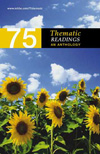
Adam Smith |  |
Adam SmithAdam Smith, "Of the Principle of the Commercial, or Mercantile System" Adam Smith (1723-1790) was born in Kirkcaldy, near Edinburgh, Scotland.
He studied at the University of Glasgow and at Oxford University. A philosopher,
an economist, and a writer, he was also a professor of philosophy at the
University of Glasgow. His books include the classics The Theory of
Moral Sentiments (1759), Lectures on Jurisprudence (1766),
and Essays on Philosophical Subjects (1795). An Inquiry into
the Nature and Causes of the Wealth of Nations (1776) is Smith's most
important work. In it he argues against strong government intervention
into economic systems. Rather, he suggests a system of laissez-faire economics,
in which an "invisible hand" of supply, demand, and competition
is the proper thing to guide economic markets. "Of the Principle
of the Commercial, or Mercantile System" is an excerpt from TheWealth of Nations. | QUESTIONS FOR DISCUSSION | CONTENT - According to Smith, what is the "double function" of
money?
- How did the Tartars and the Spanish differ as to how they measured
wealth?
- Why did merchants lobby to be able to use gold and silver to purchase
goods outside their countries?
- Explain briefly the concept of "the balance of trade."
- What's the problem with "over-trading"?
- What are the advantages of transporting gold and silver as opposed
to transporting other commodities?
- Describe the general relationship between money and goods that
Smith points out.
STRATEGY AND STYLE - Did you understand the references the author made to, for example,
the Spartans, Lycurgus, and Lacedemon? If you did, what other similar
references can you list? If you didn't, look them up now. What effect
might this knowledge gap have had in your appreciation of this reading?
What might you do about similar things in the future?
- Describe this piece as a comparison/contrast essay. What two things
are being compared and contrasted? How does Smith support his main points?
- The author makes an analogy, comparing silver and gold to wine.
Trace his use of this literary device. How effective is it in illustrating
his points about the commercial system?
- Discuss the tone of the title of this piece. How can you contrast
it to the tone of Gloria Steinem's title, "Sex, Lies, and Advertising"?
What are some of the things that go into the differences of these two
titles?
| ENGAGING THE TEXT | - How important is money to you? Do you think you're normal in this
regard, or somewhere left or right of center? How do these feelings
affect your relationship with this piece?
- You've probably bartered or traded for something in your life.
If you have, what was the nature of a memorable trade you made? If you
haven't, think about the process. How is bartering different from trading
money for goods or services?
| SUGGESTIONS FOR SUSTAINED WRITING | - Write an essay detailing how changes in travel, transportation,
and electronic commerce have had an impact upon Smith's ideas of the
commercial system.
- What are some of the ways you as a reader differ in terms of audience
compared to the initial audience for this essay? Be as specific as you
can in describing yourself as an audience, and point to specifics in
the text to show what Smith considered his audience.
| FOR FURTHER RESEARCH | Do some research to find out a bit about the current U.S. balance of
trade. Is America presently in a trade surplus or a trade deficit? What
amounts are involved in these matters? Describe the reaction of one commentator
about this issue. How can you tie in these things with Smith's approach
to the balance of trade? | WEB CONNECTION | One good way to start researching someone online is to locate a good
page of links. Click here and you'll find just that, an Adam Smith links
page. | LINKS | Biographical Here's a hyperlinked biography
with a portrait of Smith from Bartleby.com. How trustworthy do you find
the information here? How can you test such a thing? Here's another hyperlinked biography.
How does the information differ here as compared to what you found above?
What accounts for the difference, do you think?
Bibliographical Smith had some strong ideas about education spending. Read this
excerpt from
his book The Wealth of Nations to find out more. Want to read some more of Smith's work, but on a different topic? Visit
this site
and you'll find the entire The Theory of Moral Sentiments in
etext.
Cultural Let's take a campus stroll. This is the homepage
of the University of Glasgow, with which Smith had a long and close
relationship. This is the homepage
of The Adam Smith Institute, which is devoted to studying current events
involving free markets and free trade. Interested in doing some research about the historical impact of
Smith's work upon world economies, but not sure how to narrow such a
vast topic? Take a look at this Adam Smith bibliography
and you're sure to find some good ideas.
|
|
|
|